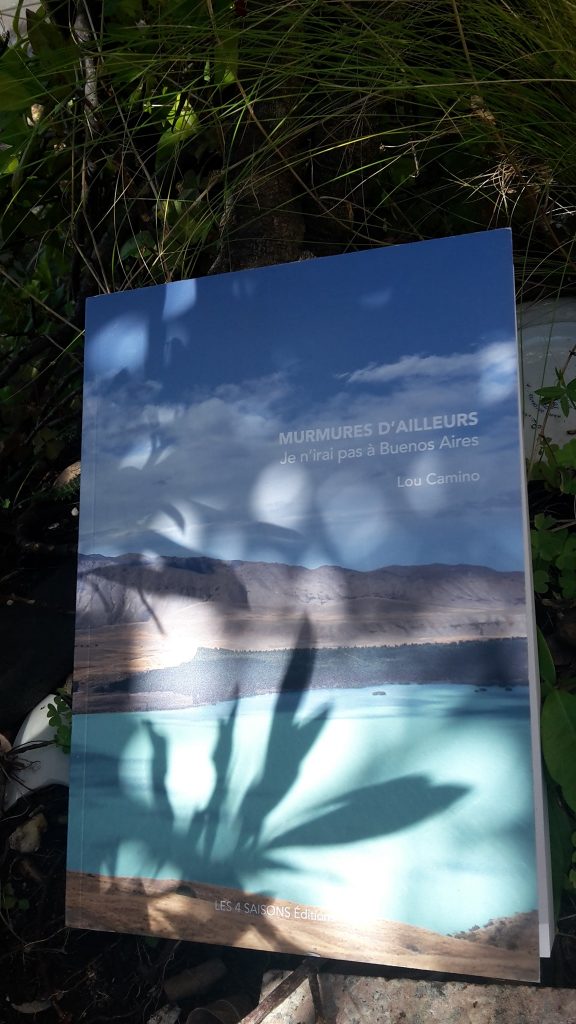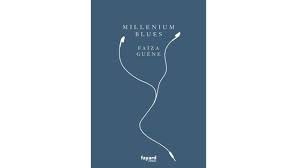
MURMURES D’AILLEURS : Je n’irai pas à Buenos Aires
(LES 4 SAISONS Éditions, 2020)
Lou Camino
A photo-narrative of Aotearoa and Paris, during the pandemic.
.
I read this photo-narrative in London’s autumnal sun during that in-between period just after complete lockdown. Photographer Lou Camino, a ‘self-proclaimed optimist’ created WHISPERS FROM ELSEWHERE : I won’t go to Buenos Aires just before and then during the first twenty-seven days of lockdown in Te Whanganui-a-Tara / Wellington in Aotearoa / New Zealand and during the last eighteen days of (the first) lockdown in Paris. Two lockdowns that made a stop-over in Buenos Aires planned for the return trip to Paris impossible.
In WHISPERS FROM ELSEWHERE, Lou Camino tells of fortuitous encounters and amusing cultural misunderstandings – including the story of the ‘kiwis’ not to be confused with ‘Kiwis’ , a comedy sketch you could see in the New Zealand comedy series Flight of the Conchords. She shares her stream of consciousness thoughts – with mini thematic, informative detours, observations made during her prolonged stay in Aotearoa and her return to Paris.
The text is studded with stunning photos – some of my favourite images are : Mount Vic Tunnel ; the photo taken on board the Ferry that links Te Whanganui-a-Tara in the North Island with Waitohi / Picton in the South Island; and the photo of Delux Café in Wellington, where you can savour homemade cakes and sandwiches.
The photo of Cape Rēinga (p. 111) made me think of the moving bilingual docudrama (in te reo Māori and English) Māui’s Hook, directed by Paora Joseph, who accompanies five whānau (families) bereaved by suicide on a hīkoi (journey) towards Cape Rēinga : « the most northern point of the North Island […] the place where the soul of the dead cross over to join the beyond » (MURMURES D’AILLEURS / WHISPERS FROM ELSWHERE, p. 110).
The chapter nearing the end (Jour 16), where Lou Camino writes about « two incredible gestures of generosity and solidarity, initiated by groups of people » in Ireland and Taiwan made me think of the UK magazine Positive News, which only publishes journalistic articles about ‘good things that are happening’ : a magazine where I could easily imagine an interview with the optimist Lou Camino.
.
Māui’s Hook (2018) Trailer
The new film by Māori psychologist and filmmaker Paora Joseph (Tātarakihi: Children of Parihaka) invites open discussion of suicide through the brave testimony of five grieving families travelling to Cape Reinga.
.
Sign up to e-newsletter to be alerted when new reviews are posted
‘
MURMURES D’AILLEURS : Je n’irai pas à Buenos Aires
(LES 4 SAISONS Éditions, 2020)
Lou Camino
Un récit-imagé – d’Aotearoa et de Paris, en pleine pandémie.
.
J’ai lu ce récit-photo au soleil automnal de Londres pendant la période floue de l’après-confinement. La photographe Lou Camino, ‘une optimiste autoproclamée’ a créé MURMURES D’AILLEURS : Je n’irai pas à Buenos Aires juste avant et puis pendant les premiers vingt-sept jours de ‘lockdown’ (‘confinement’) à Te Whanganui a Tara / Wellington en Aotearoa / Nouvelle-Zélande et pendant les derniers dix-huit jours du premier confinement à Paris. Deux confinements qui ont rendu impossible une escale à Buenos Aires prévue lors du voyage de retour à Paris.
Dans MURMURES D’AILLEURS, Lou Camino raconte des rencontres fortuites, des malentendus culturels amusants – dont l’histoire des kiwis à ne pas confondre avec des … Kiwis, un sketch qu’on imaginerait bien dans la série humoristique néo-zélandaise Flight of the Conchords (une sitcom sur deux Néo-Zélandais basés à New York qui prennent tout au pied de la lettre). Elle partage ses pensées au fil de la plume – avec de petits détours thématiques instructifs, des observations faites pendant son séjour prolongé en Aotearoa et son retour à Paris.
Le texte est ponctué de belles photos – quelques-unes de mes images favorites sont : celle de Mount Vic Tunnel ; celle prise à bord du Ferry qui fait l’aller-retour entre Te Whanganui-a-Tara dans l’Île du Nord et Waitohi / Picton dans l’Île du Sud ; et puis la photo de Delux Café à Wellington, où l’on peut se régaler de petits gâteaux et de sandwichs faits maison.
La photo de Cape Rēinga (p. 111) m’a rappelé l’émouvant docudrame bilingue (en langue Māori et en anglais) Māui’s Hook, réalisé par Paora Joseph, qui accompagne un hīkoi (‘un voyage’) de cinq whānau (familles), endeuillées par le suicide d’un proche, vers Cape Rēinga : « le point le plus au nord de l’Île du Nord […] le lieu de passage des âmes des morts pour rejoindre l’au-delà » (MURMURES D’AILLEURS, p. 110).
Le chapitre vers la fin (Jour 16), où Lou Camino raconte « deux gestes incroyables de générosités et de solidarité, initiés par des groupes de personnes » en Irlande et en Taïwan m’a fait penser au magazine Positive News, qui ne publie que des articles de journalisme sur les « bonnes choses qui arrivent » : un magazine où l’on verrait bien une interview de l’optimiste photographe Lou Camino.
.
France Gall – Résiste
Résiste est une chanson interprétée par France Gall, paroles et musique de Michel Berger, sortie en single en 1981
.
Abonnez-vous pour être averti des nouveaux articles publiés: voir NEWSLETTER – Farlane on French Writers
.
.
